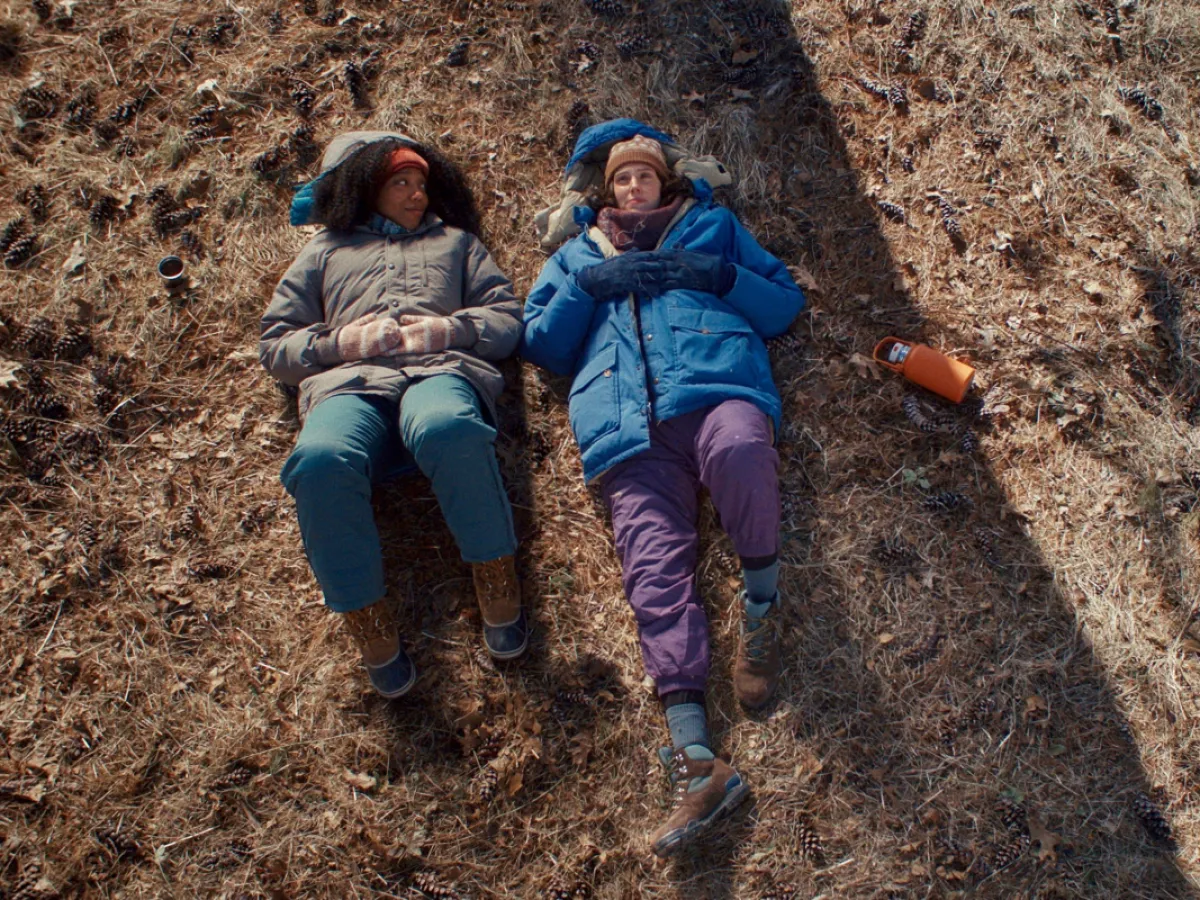
From the moment I saw the poster and trailer for Eva Victor’s Sorry, Baby, only one thought raced through my mind: please don’t kill that goddamn cat. Maybe it’s because one of the first books on screenwriting I ever read was Blake Snyder’s Save The Cat! The Last Book on Screenwriting You’ll Ever Need. Maybe it’s because my parents became “cat people” late in life and now have five of them, so they have sort of become my de facto brothers and sisters. Or, maybe it’s just because a title like Sorry, Baby triggers a lot of traumatic ideations, sending the mind skyrocketing in 1,000 different directions and, oh, by the way, I have anxiety too. Regardless of why I feared for that feline, I can safely report no cats were harmed in the making of this motion picture, nor were they fake-harmed on screen whatsoever. My fears were entirely unfounded. SPOILER ALERT: All nine lives intact.

What is, decidedly, not intact is my soul, which went on quite the profound journey while escaping to Eva Victor’s minor masterpiece of a directorial debut, the faultless Sorry, Baby. And trust me: I know how hyperbolic that sounds. Referencing my soul, using words like “profound,” and even tossing out that controversial “masterpiece” label. “He can’t possibly be right!” Oh, but I am, dear friends, and you are all the better for it. It’s rare when a filmmaker comes to us so fully formed, so “of their own voice,” and so unflinching in their vulnerability and vision. I was not familiar with Eva Victor as a comedian, so I went into this with no attachments whatsoever. I was blown away after minute one; the way they carry a frame, the way they know just how to manipulate the camera with their eye movements, the way they give space for their fellow actors to breathe and react. It’s a selfless performance, not only as its star, but also its director.
Told in various parts, not chronological, Sorry, Baby is all about Agnes (Eva Victor), a young English student/professor just living her life in a typical New England hamlet, watching her friends move off and do amazing things without her, and still dealing with a traumatic incident that happened to her years before. It’s that incident that colors this entire film. We don’t learn exactly what it was until close to the halfway mark, but we can see it coming. And that’s no fault of the filmmaking. It’s actually quite sad that we, as moviegoers, automatically look for the worst in certain cinematic situations, based merely on gender. Or, it’s because men are still awful and that hasn’t really changed in centuries. But the incident itself is the coloring, it’s not the sauce. The sauce is how Victor chooses to manifest their character’s trauma in each of the disparate parts of the film. On the second watch, I really started to pay attention to the subtle shifts they were making from part to part, saying so little but informing so much. They create this energy that is entirely familiar and surprisingly unique.

With yet another magnetic supporting turn, Naomi Ackie continues to crush it. As Agnes’ best friend and near-sister, Lydie, Ackie is the best friend we all wish we had. I loved seeing the different shades in their relationship, as they grow older and a bit more apart. John Carroll Lynch probably has the most unnecessary role in the film, but he imbues it with such humanity and grace that he turns it into the most important moment of the film. And Lucas Hedges. He doesn’t grace our screens nearly as much as we’d like, but he was tailor made for the role of “Gavin”, Agnes’ next door neighbor and like a more affable Michael Cera, if that were possible. Everyone is at the top of their games here, likely inspired by the crackerjack screenplay which brims with lived experience, claimed trauma, and hysterical heartbreak.

When the moment comes that we see the “incident” play out, it is handled with the utmost care. It’s an empty frame. It only becomes alive when Agnes enters. The way we follow her all the way to her car, sitting in the mood of the piece, our imaginations racing alongside hers; it’s a masterclass in patience and power. It’s a horrible thing that is treated for what it is, no more and no less. Sorry, Baby understands you can’t have authenticity without believability and Victor has poured their everything into this picture. It’s quite an achievement. And, also, final thought: thank you for making academia look cool again. Thank you for making English teachers cool again. And thank you for not killing the goddamn cat.
Rating: ****1/2/***** (now playing in limited release via A24)




